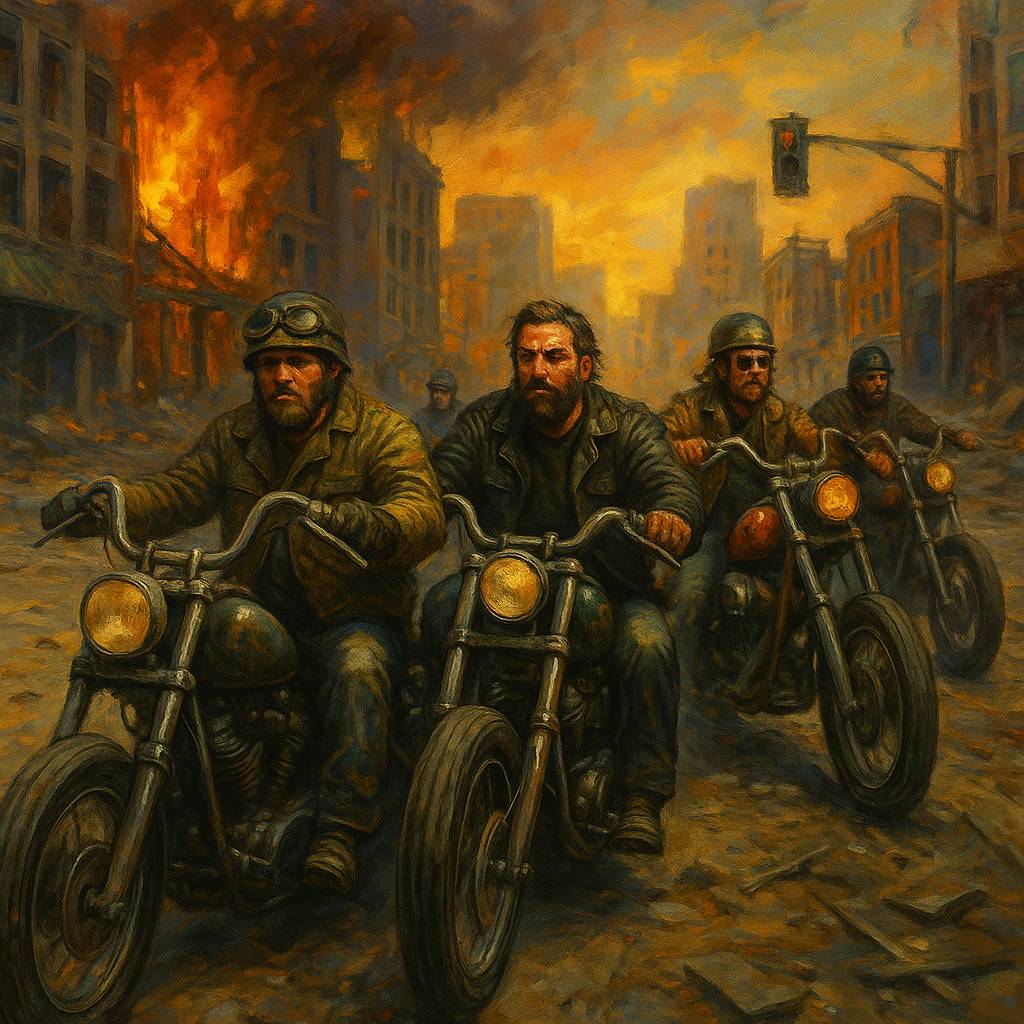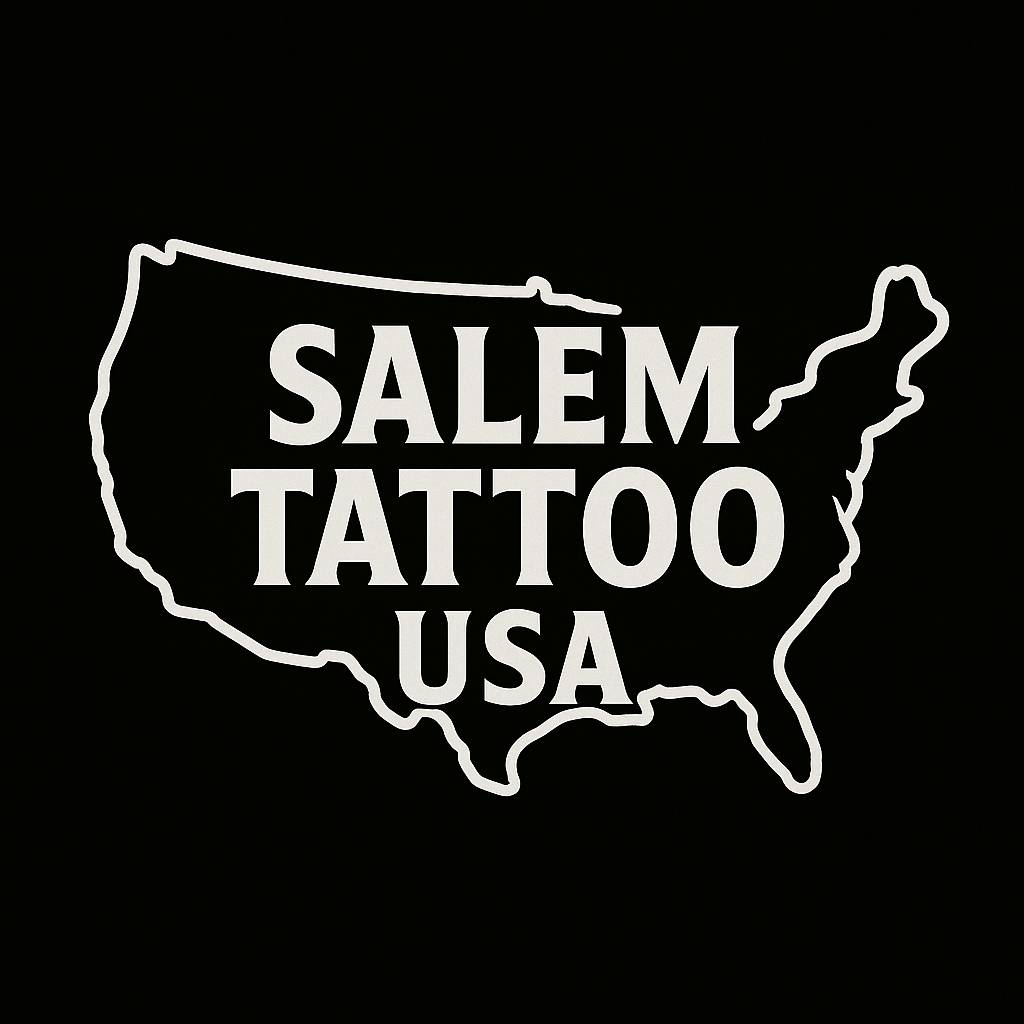Earth Gone Sideways

Chapter One: From Asphalt to Dust
1. Earth Gone Sideways
By the time the world gave up the ghost, most folks were either tuned out or gunning for the last piece of meat. The streets echoed with the last gasps of a dying era—smashed glass under boots, sirens swallowed by smoke, and the stink of desperation clinging to every corner.
I remember old Grizz, a mechanic out of Pendleton, leaning against the frame of his half-buried garage, flipping a wrench in one hand and a cigarette in the other, muttering, “Guess this is what the end smells like.” Cities burned under the glow of dead traffic lights. Governments folded like wet paper bags. Satellites blinked out one by one until the sky looked as blank as the future.
It wasn’t the end of the world—just the end of the world as we knew it. And in the wreckage, something old refused to die.
Bikers.
They didn’t fold. Didn’t flinch. Didn’t fall in line. While the rest of humanity scrambled for bunkers or boarded cruise liners to nowhere, they rolled out into the wastelands, kicking up dust with pipes growling like war drums. These weren’t weekend warriors or leather-clad posers. These were road rats with motor oil in their veins, who’d rather die behind bars—handlebars—than fade away in some sterilized dome.
In the crumbling skeletons of what used to be Oregon, Washington, the Dakotas—hell, anywhere with pavement still clinging to the dirt—patches still flew in the wind. Their cuts worn like armor, grease-streaked and sun-bleached. The laws were gone, fuel was tighter than a miser’s wallet, and every ride was a bet against the odds. But still, they rode.
They scrounged fuel from old depots, distilled ethanol in backyards, and welded busted frames with coat hangers and anger. They didn’t just ride for the wind anymore—they rode because they had to. It was freedom or nothing. Survival on two wheels.
So when the whispers started, when some ex-NASA burnout mumbled about terraforming and Mars tickets, the biker world lit up like a match to oil. In the bars that still had a roof, over CB radios with half a signal, and around crackling campfires in the dead zones—people started talking. Some laughed it off, calling it another government pipe dream. Others got real quiet, staring into their beers like they could already see the red dirt spinning under their wheels.
The idea of a fresh planet, no laws, no leash—just raw terrain and open space—it struck a nerve. And when MarsCo made its pitch—colonists wanted, engineers, mechanics, hard bastards with know-how—the road dogs were already halfway packed.
After all, if Earth was already dead, why not raise a little hell on Mars?
They talked about it over warm beer and open bonfires, sitting on crate-stools and hood-tops under skies without satellites. Mars wasn’t just an escape—it was the next frontier, the new Wild West. The last ride. Old timers called it a fool’s errand. Younger ones sharpened their knives and polished their wrenches.
Grit, Dex, Patch, Sol, and Torch weren’t names out of a phone book. They were earned. They were stitched into jackets, branded onto tanks, and whispered across truck stops and border towns. When MarsCo’s application asked for a reason, they wrote one line:
“We make broken things run.”
And somehow, that was enough.
